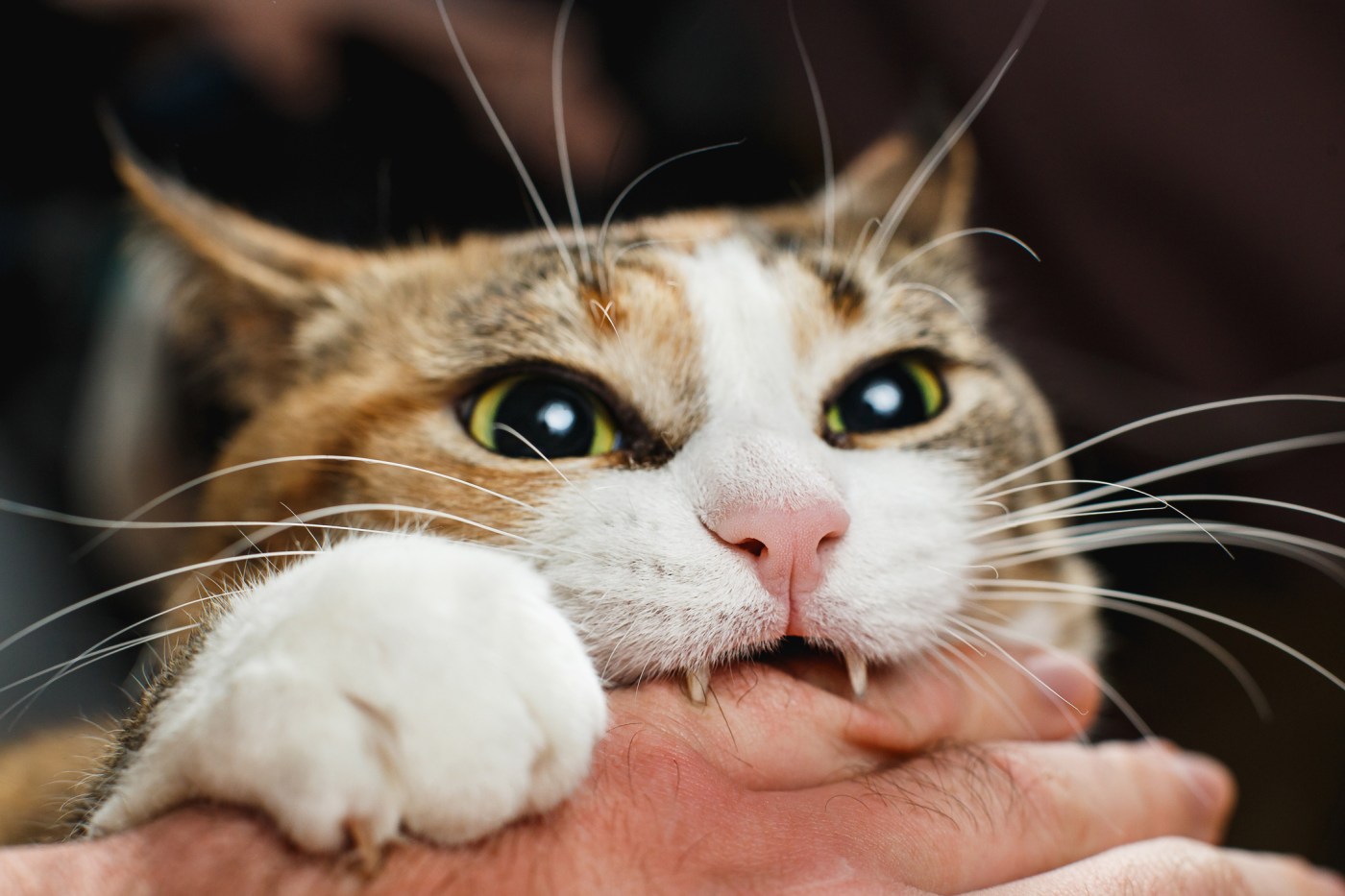DEAR JOAN: I adopted a cat from Peninsula Humane Society in Burlingame. He is a 2-year-old flame point Siamese, we think, with blue eyes.
He is a biter. He is very playful, runs after tossed toys and has endless energy. The behaviorist at Peninsula Humane suggested I give him time to adjust. I’ve had him for 1 month.
He was a stray and was neutered after he was brought to the Humane Society. He was very affectionate and handleable at the shelter. At my home, he’s a different cat. I cannot pet him. He will lick my fingers and purr as he wraps around my ankles, but …
I am not new to cats. I have had at least one cat since the mid-1980s. Am I not a good match with this cat? Do you have any suggestions for me? It has been suggested I spray water at him when he does this.
— Diane Milner, San Mateo
DEAR DIANE: Cats bite for a number of reasons, including being playful, becoming startled, being overstimulated, feeling defensive, lacking socialization or being in pain. My guess is he’s feeling defensive or hasn’t been socialized. Some cats don’t like to be petted, and you can’t force them to accept it. They might on their own, in time, but we have to respect their feelings.
Stopping the behavior is possible, but it will take time and patience.
Related Articles
Mountain lion caught on camera roaming Milpitas
California pelicans are starving. Now we think we know why.
One of world’s rarest whales sighted off Point Reyes coast
Oakland man asks how to discourage squirrels from ravaging his fruit trees, garden
Moose kills Alaska man attempting to take photos of her newborn calves
First, closely examine your home for things that might be causing him stress.You might start by shrinking his space. Instead of giving him the run of the house, try keeping him in a single room or area where there is less stimulation. He could be feeling uneasy and need to get used to space and people slowly.
Be with him as much as you can. Offer him treats and, if he accepts touching, pet him. If he bites you, move away and even leave the room for a few minutes. When you return, reward him if he acts appropriately to you. He will learn that certain behaviors – biting – are not acceptable, but that behaving nicely will earn him your attention and a treat.
Don’t yell, swat at him or spray him with water. Those punishments serve only to make him more aggressive. Stay calm and remove yourself from the room when he bites.
All his biting aggression is related to how he’s feeling and his fears and is not a reflection on you.
DEAR JOAN: I’m wondering if you have any idea why we have pelicans at Lexington Reservoir. They’ve shown up this week, about six that we’ve seen, but that of course means that they have flown over from the ocean across the mountain range. I understand from a friend that pelicans along the coast are dying? Hunger? What’s going on?
Related Articles
Mountain lion caught on camera roaming Milpitas
California pelicans are starving. Now we think we know why.
One of world’s rarest whales sighted off Point Reyes coast
Oakland man asks how to discourage squirrels from ravaging his fruit trees, garden
Moose kills Alaska man attempting to take photos of her newborn calves
— Adrienne, Los Gatos
DEAR ADRIENNE: Pelicans are unusual at Lexington Reservoir, although the birds have been known to visit further inland than we might expect.
Unfortunately, brown pelicans are showing up around the Bay Area in poor condition. International Bird Rescue in Fairfield has almost 150 rescued birds that are weak and ill because of starvation.
Experts aren’t certain what’s going on. It could be the weather has impacted the supply of fish, sending the birds scrambling for food.
Animal Life runs on Mondays. Contact Joan Morris at [email protected].












